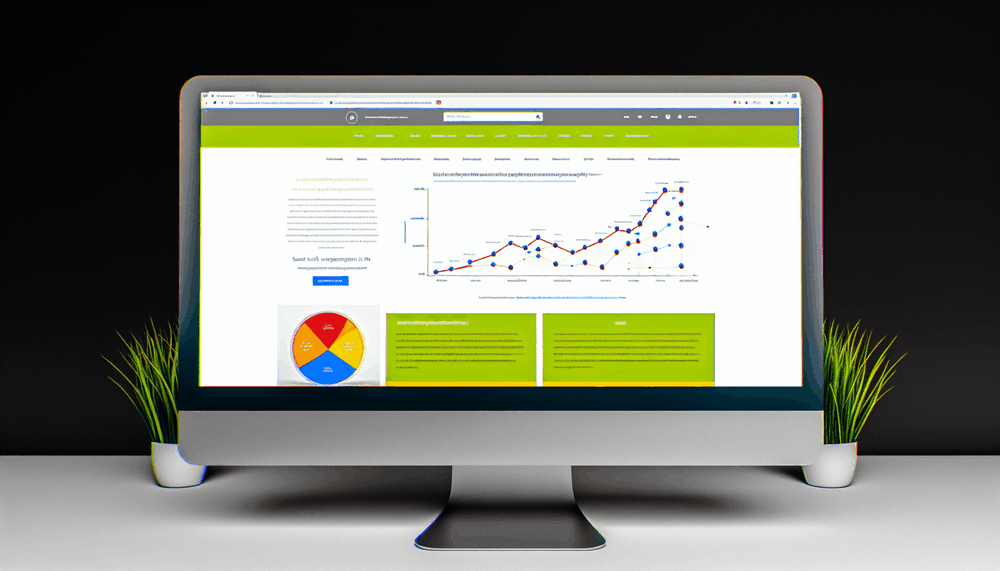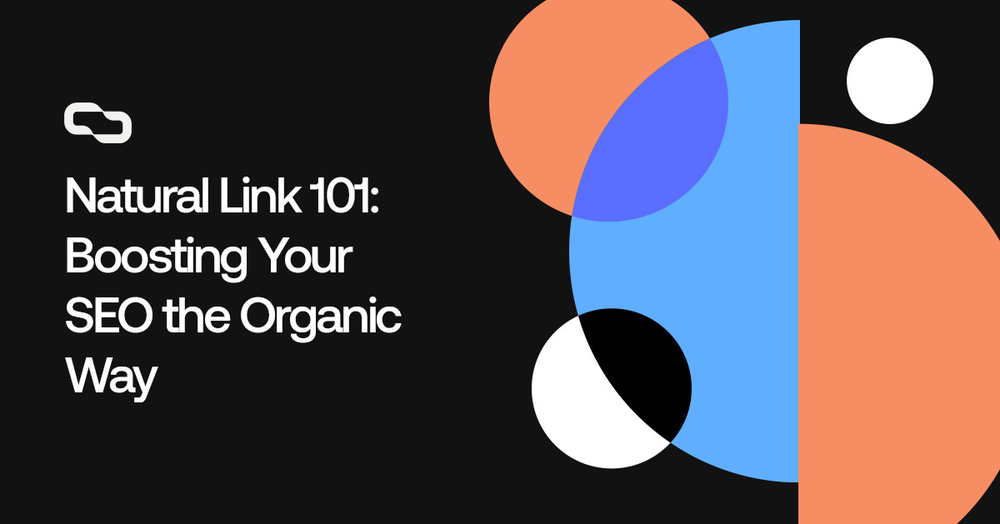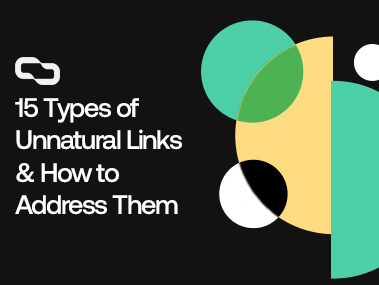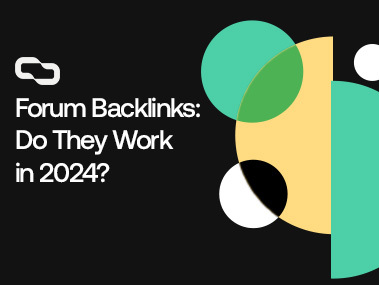Get links on brand new relevant articles for a boost of Authority and Relevance that’ll catapult your SEO. Our links include both DR and Traffic, so you don’t have to choose between one or the other.
Link Acquisition Mastery: 15 Proven Strategies to Boost Your Website Authority


If you’re questioning how to amplify your website’s reach and authority, link acquisition holds the key. This process of gaining valuable backlinks is a cornerstone of SEO success.
Our focused article strips away the fluff, delivering 15 solid tactics for link acquisition that promise to bolster your online presence.
Key Takeaways
- High-quality link acquisition from relevant, authoritative sites boosts SEO rankings, website authority and can lead to increased organic traffic and brand awareness.
- Effective link acquisition strategies for 2024 include publishing original research, creating useful online tools, guest blogging, and engaging in digital PR to generate reputable backlinks.
- Not all backlinks are beneficial; good links come from credible sources and add value, while bad links from irrelevant or spammy sites can damage your site’s reputation and SEO performance.
What Is Link Acquisition?

Link acquisition is the process of gaining backlinks from high-authority websites. It’s like making friends in the online world, but instead of people, your website is making connections with other websites.
When an authoritative website links to your site, it’s like they’re giving you a thumbs up, telling everyone else, “Hey, check this out, it’s good!”
But why does this matter?
Well, search engines, like Google, pay close attention to these links. They see each link as a vote of confidence.
The more votes you have, the more the search engines think, “This site must be helpful, let’s show it to more people.”
So, getting these links can help your website show up higher in search results, which means more people can find and visit your site.
Benefits of Link Acquisition

Sure, a link acquisition strategy can improve search engine rankings, but the benefits don’t stop there. It’s a powerful trifecta – enhanced website authority, increased organic traffic, and boosted brand awareness.
Let’s break it down further.
1. Increased Website Authority
Think of website authority as your online reputation. When authoritative sites link to yours, they are essentially vouching for your content’s trustworthiness.
This trust is contagious, and search engines pick up on it, viewing your site as an authority in your niche.
The beauty is that this authority isn’t just a vanity metric. It can make the difference between appearing on the first page of search results or being buried on the tenth.
A high link popularity can also influence:
- how often your site is crawled and indexed, ensuring your latest content is quickly discovered and served to users
- attracting sponsored posts
- increasing affiliate sales
2. More Organic Traffic

In the popularity contest of search engine rankings, quality backlinks are your cheerleaders.
Each link is a recommendation that boosts your chances of ranking higher in search engine results. And ranking higher means more visibility and more sales.
Now, it’s important to mention that not all links are created equal.
A link from a well-respected website in your niche can have a bigger impact on your rankings than a backlink from a less well-known one.
This is why a strategic approach to link acquisition that focuses on quality over quantity is essential.
3. Increased Brand Awareness
Every click on your website link is a new opportunity to make an impression on your target audience.
If they like what they see, they might share your content, mention your brand, or return to your site in the future.
Over time, your brand becomes more recognized and respected in your field.
This recognition can lead to more opportunities for collaboration, partnerships, and even business growth.
15 Link Acquisition Methods That Will Work in 2024
1. Publish Data Studies
Why not become the source of original data in your industry?
Conduct surveys, research, or analyses that others don’t have the resources or time to do.
When you offer new data, you become invaluable. Others in your industry will reference your findings and link to your study, and you’ll be seen as a leader in your field.
2. Create Online Tools
Think about the common challenges in your industry. Can you create a tool that addresses these challenges?
It could be a simple calculator, a planning tool, or anything that offers a practical solution. When people use your tool and find it helpful, they’re likely to recommend it by linking to it.
3. Guest Blogging
You get guest post links when you share your expertise on other sites.
So, make sure to provide genuine value. Don’t just rehash old ideas; offer new insights, practical advice, or unique perspectives.
In return, you’ll get a link back to your site, which not only boosts your SEO but also introduces you to new audiences.
4. Link Insertions
This is about inserting your links into existing, relevant content on other sites. It’s not about being sneaky; it’s about adding value.
Maybe an article mentions a concept that you’ve covered in depth on your site. You can suggest adding your link as a resource for readers who want to explore that concept further.
5. Digital PR
Digital PR is about making your site newsworthy. Launch a unique product, conduct interesting research, or do something impactful in your community.
Then, share your story. If it’s compelling enough, news sites and bloggers will want to talk about it and link to your site.
6. Infographic Link Building

People love sharing visuals. Create infographics that condense data, illustrate trends, or simplify complex topics.
When people use your infographics in their posts or social media, they usually link back to you, which doesn’t only earn you super relevant links but also boost your site’s reach.
7. Image Link Building

If you create unique images, others may want to use them. When they do, they often credit the image owner with a link. This could be anything from photographs to custom graphics or illustrations.
8. Participate in HARO
With HARO, you can share your knowledge in response to journalists’ queries. If a journalist likes your insight, they’ll use it in their article with proper crediting.
It’s a great way to get high-quality editorial backlinks from reputable news sites.
9. Be a Podcast Guest
Podcasts are always looking for interesting guests.
If you can share valuable insights, stories, or advice, you can reach a super targeted audience that can turn into customers.
Plus, you’ll often get a backlink in the podcast’s show notes or website.
10. Resource Page Link Building
To find relevant resource pages in your niche that link to content like yours, start by identifying these relevant resource pages.
Reach out to the page owner and make a case for why your content would be a valuable addition. Be specific about the value your content adds.
11. Unlinked Brand Mentions
Sometimes, sites will mention your brand without linking to you. When you find such mentions, reach out to the site owner. More often than not, they’ll be happy to add a link, especially since it adds credibility to their content.
12. Link Reclamation
Link reclamation is all about identifying and restoring links to your website that were previously removed or have become broken.
Since the site owner already recognizes you, the process of re-establishing the link is often more successful. This makes link reclamation one of the best link-building strategies in your toolkit.
13. Brand Collaborations
Collaborate with other brands on projects, events, or content. These collaborations naturally lead to shared content that includes links, helping both parties increase their visibility and authority.
14. Broken Link Building
Find broken links on other sites that are relevant to yours. Then, email the site owner telling them that their link is broken and suggest your content as a replacement.
It’s helpful for them (no one likes broken links) and beneficial for you
15. Participating in Forums and Online Communities
Engage genuinely in forums and communities related to your niche. Share your knowledge, answer questions, and be a helpful presence. When appropriate, you can:
- Link to your content for further reading
- Share relevant resources
- Offer advice and tips
- Provide valuable insights
But always prioritize providing value first.
Good vs Bad Links
Not all links are created equal. Understanding the difference between good and bad links is crucial for effective link acquisition. Let’s delve deeper into what makes a good link and what makes a bad one.
What Makes a Good Link?
- Relevance: Good links come from websites that are relevant to your niche or industry. If you’re in the health sector, a link from a respected medical journal carries more weight than a link from a random fashion blog.
- Authority: Links from authoritative and trustworthy sites are like gold. These sites have established credibility, and a link from them is a strong endorsement of your content’s quality and reliability.
- Natural: Good links are given voluntarily based on the merit of your content. They’re not bought, traded, or artificially placed. They feel like a natural part of the content and provide value to the reader.
- Diversity: A healthy backlink profile has links from a variety of sources. It’s good to have a mix of links from different domains, including industry blogs, news sites, and educational institutions.
- Contextual: A good link is placed within content that is relevant to your site. It’s surrounded by text that makes sense and adds to the reader’s understanding of the topic.
What Makes a Bad Link
- Irrelevant: Links from sites that have nothing to do with your content or industry can be harmful. They don’t provide value and can confuse search engines about the focus of your website.
- Low Quality: Links from spammy, low-quality websites can damage your site’s reputation. These sites often have poor content and engage in dubious practices like excessive ads or malware.
- Paid or Artificial: Buying links or participating in link schemes goes against search engine guidelines. Such practices can lead to penalties, as they attempt to manipulate search rankings unfairly.
- Over-Optimized Anchor Text: If all your inbound links use the exact keyword-rich anchor text, it can look manipulative to search engines. Natural link profiles have a mix of anchor text, including branded, generic, and varied keyword phrases.
- Fast Accumulation: Gaining a large number of links in a short period can raise red flags for search engines. It suggests unnatural link acquisition, which could lead to scrutiny or penalties.
FAQs
What is a link building strategy?
Link building is the process of getting other websites to link to your page, and it’s crucial for improving your SEO and search engine rankings. By acquiring high-quality inbound links, you can increase your site’s authority and drive referral traffic.
What does buying links mean?
Buying links means paying another website to put a link to your website on one of their pages, with the aim of boosting your rankings in search engines. It’s a way to acquire links to your site for a fee.
How does link acquisition increase website authority?
Link acquisition increases website authority by obtaining endorsements from authoritative and trustworthy sites, which in turn improves the site’s credibility and search engine rankings. This means that the more high-quality links you have pointing to your site, the higher your website authority will be.
What is the difference between good and bad links?
Good links are natural, authoritative, and provide value, while bad links are irrelevant, low-quality, and can harm your site’s reputation and search rankings. Be mindful of the type of links you’re associating with your website.
Conclusion
In essence, mastering link acquisition is not just about increasing the number of backlinks but about improving the quality of traffic that lands on your website.
By acquiring links, you can significantly enhance your website’s authority, organic traffic, and brand awareness, fostering relationships with industry influencers and bloggers along the way.
If you want help with link-building, feel free to reach out to us.
We offer free consultation calls for website owners, so get your courtesy call today!
Find out your exact cost of ranking for your dream keyword
Find out nowLet’s get you ranking now
If you want the team at Get Me Links to help you get more traffic
Book a call NOW Back to Blog
Back to Blog


